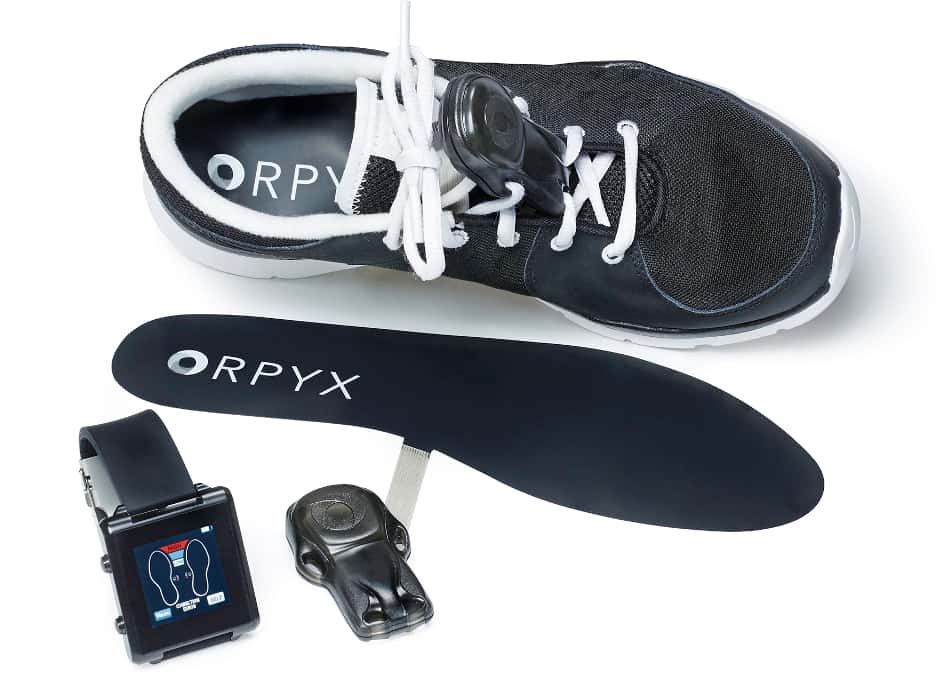The emergence or recurrence of diabetic foot ulcers has been cut by over 70 per cent during clinical trials of a smart shoe insole coupled to smartwatch alerts.

One of the complications of diabetes is nerve damage, known as diabetic peripheral neuropathy, with the resulting loss of sensation making it more difficult for individuals to feel when their foot is at risk of skin breakdown. Furthermore, foot ulcers can fail to heal and become infected over time, which can lead to some form of lower limb amputation.
Led by Neil Reeves, Professor of Musculoskeletal Biomechanics, the research team at Manchester Metropolitan University (MMU) - including research fellow Dr Caroline Abbott who ran the study - equipped trial participants with shoe inserts that use ultra-thin sensors to monitor the pressure on the underside of the foot and provide feedback via a wrist worn smartwatch.
For the trial the researchers used a smart shoe insole system called SurroSense Rx, which has been developed by Alberta, Canada-based Orpyx Medical Technologies.
Whenever the pressure sensing inserts detect clinically dangerous foot pressure, a vibratory and audio alert is transmitted wirelessly to the smartwatch prompting the device user to relieve the pressure from a particular region of their foot.
According to MMU, these warnings allowed trial participants to learn which activities or times of day were most problematic for them, and which areas of their feet were the most prone to harm. The trial volunteers could then use that information to change their behaviour.
In addition to the direct feedback provided by the SurroSense Rx system, the study is said to have tracked metrics over time and generated a dataset for researchers to monitor compliance and understand participants' foot pressure tendencies.
Diabetic foot ulcers
Prof Reeves said: “Foot ulceration is a serious health concern for people with diabetes and a major burden for global healthcare systems.
“As part of this longitudinal clinical trial, we have shown the great potential of smart technology for reducing the incidence of foot ulcers in diabetes patients.
“Studies of this nature are very challenging, but invaluable for advancing the treatment and management of people with diabetes.”
The study involved people with both Type 1 diabetes and the more common Type 2 diabetes, which accounts for 90 to 95 per cent of cases.
At the end of the 18-month study, the team discovered there was a 71 per cent reduction in the re-emergence of ulcers in the group using the early warning system compared to a control group.
The diabetic foot ulcers work was led by Manchester Metropolitan University in collaboration with Manchester University, the Manchester University NHS Foundation Trust, Lancashire Teaching Hospitals NHS Trust, the University of Miami in the US, and Orpyx Medical Technologies Inc.
Project findings were delivered to the Diabetic Foot Study Group at a meeting of the European Association for the Study of Diabetes in September, 2018.




Glasgow trial explores AR cues for autonomous road safety
They've ploughed into a few vulnerable road users in the past. Making that less likely will make it spectacularly easy to stop the traffic for...